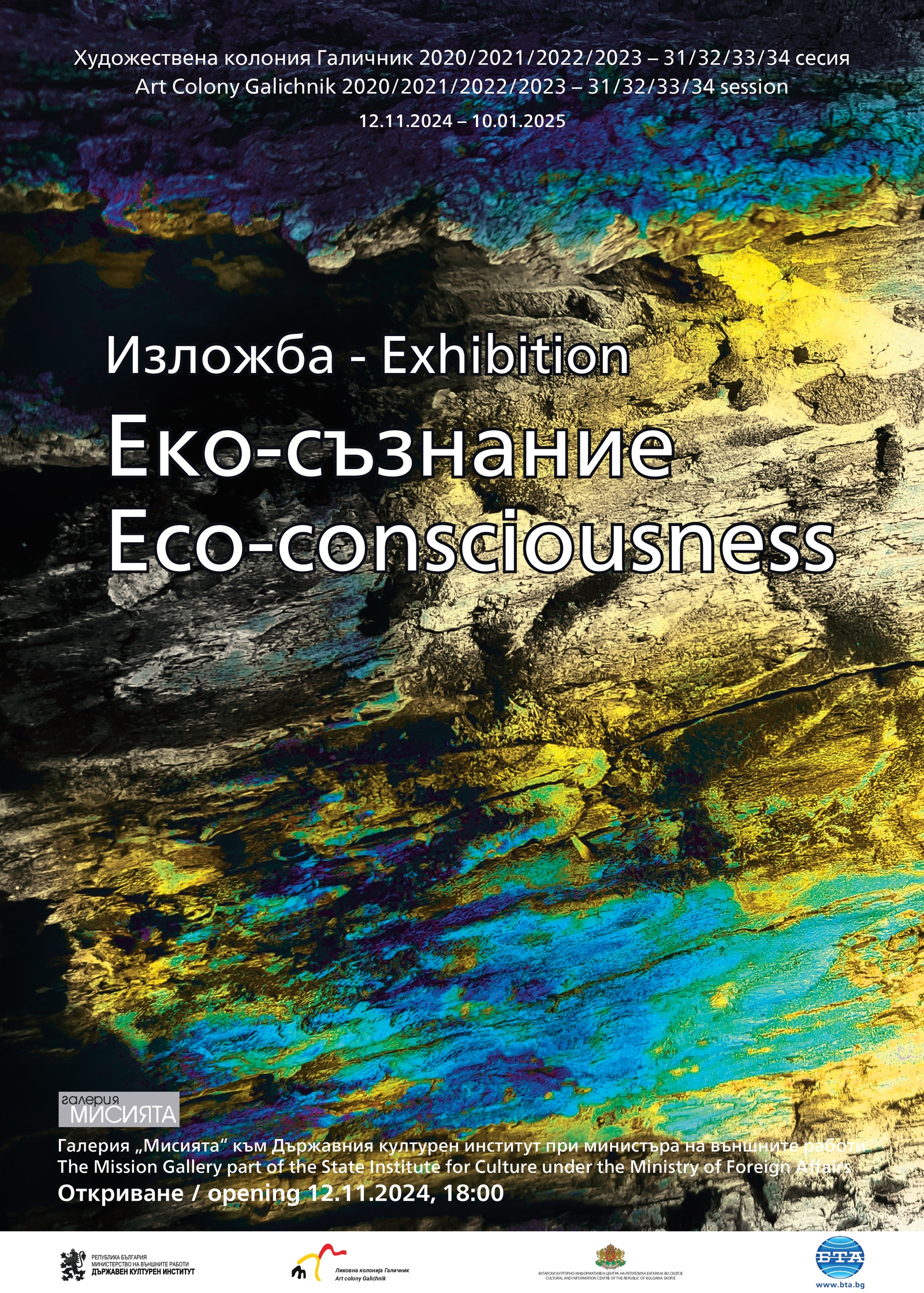The Group Exhibition "Eco-Consciousness" Presents Contemporary Artists from 8 Countries
The State Institute for Culture under the Ministry of Foreign Affairs of the Republic of Bulgaria presents the international exhibition "Eco-Consciousness", organized in partnership with the Bulgarian Cultural and Information Center in Skopje. The exhibition will be opened in the Mission Gallery in Sofia on November 12, 2024 and will be available for viewing until January 10, 2025. The selected visual works by the curator and art critic Dr. Ana Frangovska, included in the exhibition, were created in the last four sessions of the Galichnik International Art Colony and feature artists who have participated in the Colony over the past four years. The "Eco-Consciousness" exhibition was opened at the Bulgarian Cultural and Information Center in Skopje in June 2024 in the presence of the Minister of Foreign Affairs, Mr. Ivan Kondov. BCIC Skopje is a partner of the Colony and the annual support of the Bulgarian artists participating in it is part of its annual program. The Bulgarian participation in the exhibition is represented by names such as: Pravdolyub Ivanov, Kalin Serapionov, Zoran Georgiev and Zara Alexandrova, Nina and Vale.
The themes of the exhibition "Eco-Consciousness" revolve around the preservation/destruction of the environment and key ecological issues. The exhibition showcases contemporary artists from the last few years of the Colony, all of whom have proven professional experience in their home countries and abroad. Many of them specialize in audiovisual arts and challenge traditional norms and frameworks in visual art. The exhibition includes artists from Bulgaria, the Republic of North Macedonia, Greece, the Netherlands, Romania, Poland, Montenegro, and Denmark. The featured artists have explored natural and cultural complexities, focusing on the political aspects of ecology, sustainability, social justice, and economic equality.
The core motifs of the artists and themes of work from the "Galichnik International Art Colony" in recent years emphasize the urgent moment of Eco-Consciousness, which requires immediate action to stimulate processes of change and discussions—firmly, without hesitation or pretense. Contemporary Eco-Consciousness openly addresses the significant problems and challenges facing humanity related to environmental preservation. If we fail to provoke existential systemic changes, shift our consciousness, and confront the destructive power of Capital, we may all have to "remain silent forever"—because we will have no excuses, no arguments, and perhaps, no future.
The "gradual end" of Earth began with the invention of the steam engine (in 1784), which marked the onset of the industrial revolution and the rapid expansion of capitalist production methods. The term "Capitalocene" describes the upcoming era, in which humanity asserts itself as a planetary-scale geophysical force. With industrialization, climate change began at an unprecedented pace. The fossil fuel-driven economy contributes significantly to today's harmful carbon dioxide emissions. Over the past two centuries, industrial, technological, and economic growth, coupled with extractivism - the depletion of resources - mass environmental destruction, and severe pollution, have been the primary causes of today's eco-social crisis.
The arts play an essential role and can be used in conjunction with natural and social sciences to foster ecological justice. Engaged art addressing environmental challenges can reassess policies and politicize the role of art in environmental conservation. The direct critical works, views, and performances by the artists inspire and continue to provoke discussions on eco-social crises and sustainability policies, creating new models for working with the environment.



